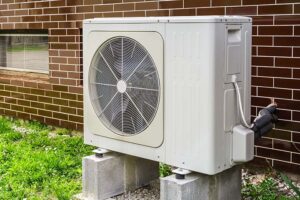Table of Contents
Boiler commissioning is vital in the new boiler installation process. It guarantees the optimal setup of the system for sufficient heat and hot water while minimising energy usage.
By law, this process must be performed by an authorised gas-safe registered engineer, who will ensure safety standards are met. The commercial boiler system operates at higher efficiency.
Boilers installed in the UK from April 2018 must have functioning timers and temperature controls, which are required to get a minimum energy efficiency (ErP) of 92%. This rule aims to enhance energy efficiency and lower environmental impact.
This requirement is not just an environmental initiative but a legal mandate. A building regulations compliance certificate confirms the successful completion of boiler commissioning. Which is a compulsory legal document that is proof of the boiler’s safe installation.
Therefore, boiler commissioning is more than a recommendation; it’s a mandatory legal requirement for all new boiler installations.
Gas Safe Registered Engineer’s Role
A gas-safe registered engineer is the main performer in the boiler commissioning process. But who are these professionals, and why are they important in this procedure?
To begin, heating engineers who are gas-safe qualified have been trained and approved to work safely with gas heating systems. They also have everything they need to go through the steps of installing a new boiler, making sure the job is done right.
Hiring a Gas Safe registered engineer isn’t just about getting the job done; it’s also about making sure everyone is safe. Don’t install or keep gas equipment the right way, and they could lose gas, catch fire, blow up boilers, or harm people with carbon monoxide.
Gas-safe registration makes sure that engineers know about the latest systems, materials, and laws. This keeps your home safe after the work is done.
Benefits of Proper Boiler Commissioning
Proper boiler commissioning is a regulatory requirement and a critical factor in achieving long-term benefits. One of these benefits is that it helps you get the manufacturer’s warranty for a new boiler. The warranty needs to prove that the boiler was installed and set up correctly by a trained engineer.
Proper commissioning also improves the boiler’s performance, which could lower the risk of future expensive fixes and increase the system’s lifespan.
It includes performance tests that check how well a boiler burns fuel and how much pollution it produces. During testing, the boiler’s output is also changed, which is necessary to keep the system running efficiently and lower energy costs.
So, spending money on good boiler commissioning will pay off in the long run by making sure that your central heating system works at its best.
Boiler Commissioning Procedure
The boiler commissioning procedure includes checking that the new installation is fitted and set up correctly. This helps ensure you gain more efficiency from heating and hot water products. You should also take steps to avoid common boiler issues. The engineer will carry out several tasks within the boiler commissioning checklist.
Boiler Commissioning Checklist
Cleansing the System
Once the heating system has been installed, it must be cleaned per the manufacturer’s instructions. This involves flushing the new system, which will prevent Black Magnetite from entering the heat exchanger of your new boiler.
Add a Suitable Corrosion Inhibitor and Refill
Once the system has been cleansed, a corrosion inhibitor must be added. This prevents hydrogen gas formation and radiator damage. It improves boiler efficiency and prevents corrosion and maintenance. Engineers highly recommend installing one for the boiler’s long durability and to save future maintenance and money.
Testing the Gas Flue Analyser
It is mandatory to fill out the benchmark book that complies with your new boiler installation. And all analyser readings in a Flue gas analyser test measuring flue gases are included. Most boilers are set up correctly when delivered, but sometimes, the numbers will be too high or too low. Your engineer will need to ensure that your new boiler is running right for you by taking readings and tweaking it. Until it gives the desired reading.
Gas Rating the Boiler for Gas Rate Tolerance
This is a technical one. Your expert may have connected a new pipe to your boiler. After that, they will have to do a gas reading (gas rate burner) to make sure everything fits right. From time to time, the pipe may need a different size. In addition, this will help keep the pipe clear so that everything works well.
Adjusting the Boiler Output
The boiler must be fitted according to the size of your house and the number of radiators. This keeps it running smoothly and heats all the radiators properly. It also keeps the boiler from running for too long, which saves you money.
Let by and Gas Tightness Test
The gas pressure inside a home’s pipes is checked by a gas tightness test. The pipe involves running from the metre to the boiler. Check the pressure to make sure it can handle the right amount of force. That way, there won’t be any leaks, which means no more fixes.
Registering Your Guarantee and Explaining How Everything Works
Your engineer should sign the guarantee. Most of the time, they have software apps that make the process easier. As soon as we file it, we should tell you about your promise. When the engineer is done with the boiler commissioning process, and everything is working well, he or she should show you how the controls and boiler work. Then, they will go over any warranties and the usual maintenance that the boiler needs.
When looking for a professional to set up your boiler, it’s important to make the right choice.
Summary
We now understand the role of a gas-safe registered engineer and the benefits of good boiler commissioning after going through the complicated process of boiler commissioning.
Boiler commissioning is more than just a technical process; it’s a promise of safety, speed, and savings in the long run.
Homeowners need to know how this process works. You can use it to make smart choices about everything, from picking the right boiler and engineer to doing regular repairs. Don’t forget that a good heating system isn’t just about being warm on cold winter nights; it’s also about safety, the environment, and your peace of mind.




